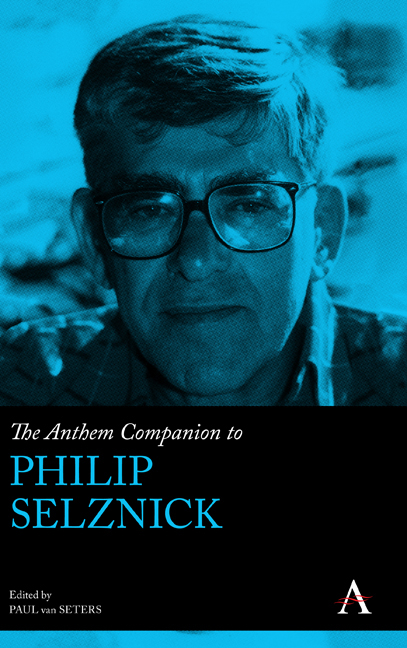Book contents
- Frontmatter
- Contents
- List of Contributors
- Chapter 1 The Intellectual Enterprise We Call Sociology
- Chapter 2 Philosophy for the Twice-Born: Selznick and Dewey in Dialogue
- Chapter 3 Power Relations across Organizations and Fields: Building on Selznick’s Concepts of Co-Optation and Institutionalization
- Chapter 4 Organizations, Institutions, and Law: The Sociological Significance of Philip Selznick’s Law, Society, and Industrial Justice
- Chapter 5 Post-Industrial Justice? Normativity and Empiricism in a Changing World of Work
- Chapter 6 The Promise of the Rule of Law Ideal
- Chapter 7 Philip Selznick on Law and Society: Democratic Ideals, Communitarianism, and Natural Law
- Chapter 8 Selznick’s Concepts of Culture and Community
- Chapter 9 A Symposium on The Moral Commonwealth
- Chapter 10 An Ecumenical Sensibility
- Index
Chapter 6 - The Promise of the Rule of Law Ideal
Published online by Cambridge University Press: 19 October 2021
- Frontmatter
- Contents
- List of Contributors
- Chapter 1 The Intellectual Enterprise We Call Sociology
- Chapter 2 Philosophy for the Twice-Born: Selznick and Dewey in Dialogue
- Chapter 3 Power Relations across Organizations and Fields: Building on Selznick’s Concepts of Co-Optation and Institutionalization
- Chapter 4 Organizations, Institutions, and Law: The Sociological Significance of Philip Selznick’s Law, Society, and Industrial Justice
- Chapter 5 Post-Industrial Justice? Normativity and Empiricism in a Changing World of Work
- Chapter 6 The Promise of the Rule of Law Ideal
- Chapter 7 Philip Selznick on Law and Society: Democratic Ideals, Communitarianism, and Natural Law
- Chapter 8 Selznick’s Concepts of Culture and Community
- Chapter 9 A Symposium on The Moral Commonwealth
- Chapter 10 An Ecumenical Sensibility
- Index
Summary
Introduction
In 2002, Philip Selznick gave a lecture in Beijing (Selznick 2005). In that lecture, he revisits the theme of the rule of law, which had retained his attention over the years, and rearticulates core features of his understanding of the rule of law. Crucially, he highlights the notion that the rule of law is an ideal, here explained as “something that we look to as a criterion or standard of good conduct, especially but not exclusively official conduct” (ibid., 30). It is good to note that this is an explanation given to a general audience, since Selznick's concept of ideals is much richer than this (Selznick 1961, 1969; Taekema 2003). In the context of the lecture, it allows him to highlight the dual nature of the rule of law: something that can be seen as a basic fulfilment of institutional criteria to prevent arbitrariness and as something that demands a commitment to realizing larger values such as equality and dignity (Selznick 2005, 32). It is this two-faced conceptualization of the rule of law that is the focus of this chapter.
In the lecture, Selznick discusses this under the heading “Two Concepts of the Rule of Law” (ibid., 30) as the negative and the more positive conception, but there are numerous reasons to doubt whether the idea of two concepts is really an adequate representation. Throughout his work, he uses the combination of basic and more demanding versions of an idea as related and interconnected rather than two separate concepts. In particular, he distinguishes “baseline” and “flourishing” as forms of realization of an ideal. Crucially, he connects the two when he discusses the move to a more demanding rule of law: “In this process there is or should be a dual focus on baselines and flourishings. We hold fast to the vital minimum even as we reach for the more subtle, more elaborated, more problematic ideal” (Selznick 1999, 34, original emphasis). Although this almost sounds like a matter of common sense, in practice it is not so easy to have a “dual focus.”
- Type
- Chapter
- Information
- The Anthem Companion to Philip Selznick , pp. 111 - 128Publisher: Anthem PressPrint publication year: 2021

